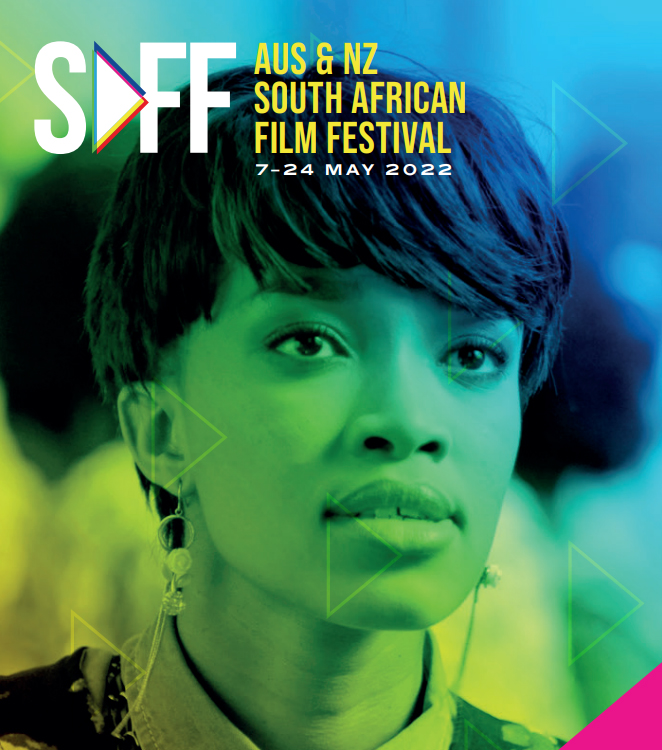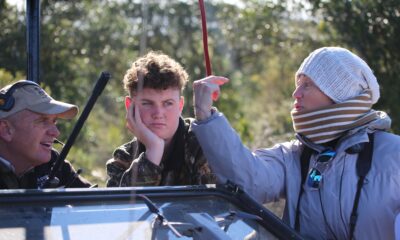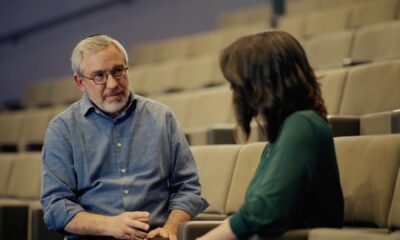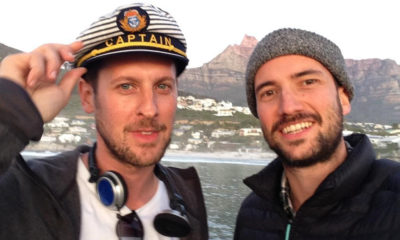
Lifestyle/Community

Film festival connects Oz expats with SA stories
When South Africans emigrate, many of them shut the door on their former country. But Claire Jankelson and Di Singer, who live in Australia, have not only kept that door open, but consciously reach through it to join hands with South Africans. Their initiative, the South African Film Festival (SAFF), is a not-for-profit event organised by passionate volunteers to showcase South African talent, culture, and diversity and support educational opportunities for disadvantaged children.
Jankelson (nee Gilinsky), was born in Cape Town, and her family moved to Johannesburg when she was 11. “I attended King David Linksfield – my main memory being the incredibly broad-minded and enlightened teachers there. Many of them were banned from teaching at government schools because of their perspectives. I remember sitting on the lawn at break time with my teachers, having political conversations. They were true educators! I had an exceptional education on so many levels.”
It’s these memories that have fuelled her passion for supporting education back in South Africa. “Di Singer, co-film festival director and formerly of Joburg, and I started working on the SAFF in 2018 and ran our first festival in 2019,” says Jankelson. “We’re following in the footsteps of SAFFs in Canada and the United States. All the SAFFs are run as non-profits, with many volunteers, and all proceeds support a project based in the Western Cape called Education without Borders (EwB), which is an after-school mentoring project for students in township schools.”
Jankelson returned to Cape Town to attend the University of Cape Town from 1974 to 1977. “I studied psychology and philosophy and finally ended up with a degree in computer science. My husband, David, and I and our three sons moved to Sydney in 1994. I’ve worked as an academic, largely doing qualitative research looking at the social impact of government projects.”
The SAFF has been “a great adventure. With no background in film or fundraising, we have cobbled together an amazing committee of more than 30 people throughout Australia and New Zealand,” says Jankelson. “They have helped pull together all the film selections, marketing, fundraising, and screenings.
“The films, which are only shown in Australia and New Zealand, open doors for our audience, offering new ways to make sense of their South African backgrounds,” she says. “They get a bird’s eye view into the complexities of a nation and the struggles, tenacity, courage, humour, beauty, and remarkable creativity that dwells in the country.”
They began screening films in cinemas in 2019, and then reinvented the festival into an online environment from 2020 because of COVID-19. “We could now offer the festival to all of Australia – including the many South Africans who live in regional and rural areas. In 2021, we included New Zealand. This year, in May 2022, we have limited in-cinema screenings at seven venues in Australia and online throughout Australia and New Zealand.
“At the heart of the festival is the mission to raise funds for EwB. We do this through donations both in anticipation of the festival and ticket sales,” says Jankelson. “We also encourage sponsorships, and invite organisations to consider the social responsibility aspects of brand identification. We have been pretty successful at fundraising. After our first festival in May 2019, we sent A$45 000 [R505 926] to EwB. In 2020, we sent $65 000 [R730 782]. Last year in May, we were very excited to send $100 000 [R1,124,280], which included six Schools in a Box [now widely used throughout the teaching programme]. This year, we have set ourselves a lofty goal of $150 000 [R1,686,420] towards funding a permanent meeting or training space for EwB.”
Jankelson has a great affection for the festival. “For me, it’s a process of re-looking at the history and understanding the evolution of a post-apartheid South Africa. I’m interested in aspects of identity formation; the place of the Khoisan people in the country; the fact that South Africa has 11 official languages; and what this means in the ongoing unfolding of culture.”
There are numerous fascinating films on offer. “One is called Die Ongetemde Stem [The Untamed Voice]. It reviews the nature of the Afrikaans language and how it’s evolved within particular cultural groups. Another one that deserves a mention is a short film called #WeAreDyingHere. Three women are portrayed reciting an indictment of the unending violence perpetrated against women in South Africa, and as the drama unfolds, one realises that the war on women isn’t just about South Africa. It’s valid universally, and has a strong colonial past.
“Our opening film this year is Pieter-Dirk Uys’ Nobody’s Died Laughing. I did a wonderful interview with him and Charlize Theron, where they spoke about humour and its place in changing attitudes. They are great old friends, and both are significant social activists. Uys wondered how he ever got away with his humour during apartheid, and they both considered the notion of community as the jewel in the crown of life.
“Other films include remarkable life stories such Melanie Chait’s Dance me to the End of Time, and films about the impact of gold mines such as Dying for Gold and We are Zama. They look at refugees who have come to inhabit unused mineshafts, trying to scrape out a living through finding precious fragments within the mines.”
For Jankelson, “The impact of this festival is that it reminds many of us South Africans where we’ve come from. We love gathering, don’t we! We hear of far-flung regional areas where small groups of South Africans gather to watch the films. So there’s a tremendous engagement in the films, and of course at in-cinema events. At the cinema, we always have a bit of fun and create a great atmosphere. We sell South African sweets, biltong, and other nostalgic items.
“There are certainly those South Africans who say, ‘We left and we’re not interested’, but there are many South Africans here in Australia and in New Zealand who eagerly wait for the next film festival and will watch every single film. That could be a film a day for the two-week period,” she says.
“We also have a lovely following from some Sydney-based indigenous Australians. One radio announcer on Koori Radio watches every film and feels a great resonance with issues of First Nations people here. She wants us to take the festival to Alice Springs – the heart of the country – and play our films for locals there. I hope one day we have the privilege of doing that. We believe our audience includes 10% to 20% non-South Africans.
“We would so appreciate it if you would let your family and friends in Australia and New Zealand know about the festival,” says Jankelson. “Invariably people come to us after the festival asking to watch the films and to complain that they didn’t know about it. We’re trying to get the word out as far as possible.”
To the South African Jewish community, she says, “We’re an incredibly bright, hardworking, and ethical community. We have made an extraordinary contribution within society. I think that a by-product of growing up in the apartheid system is that we were challenged at a very young age to find our ethical compass, to shape our values as individuals and Jews, and to strive for tikkun olam (to heal the world). The film festival assists in that ongoing sharpening and shaping process, as I and others find ways to be the best we can. I love the country of my birth. I love to walk on the land and be a part of its evolution.”
The festival runs from 7 to 24 May 2022. For details, go to www.saff.org.au.










